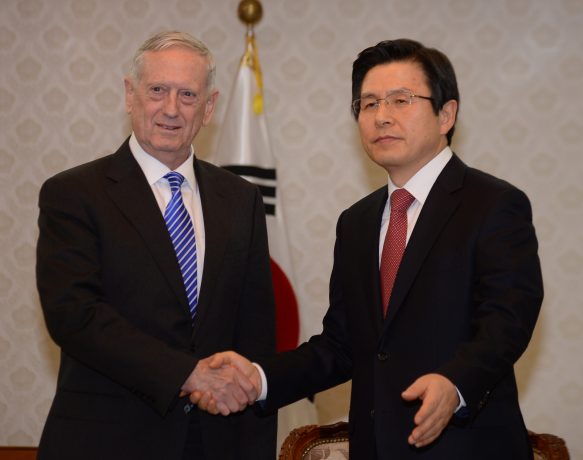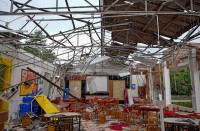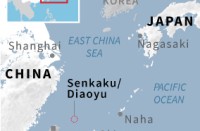
SONG Kyung-Seok / POOL / AFP
SEOUL, South Korea (AFP) — Any nuclear attack by North Korea would trigger an “effective and overwhelming” response, US Defense Secretary James Mattis said in Seoul Friday as he sought to reassure Washington’s Asian allies folllowing President Donald Trump’s inauguration.
Mattis, who was in South Korea before going on to Japan, is making the first overseas tour by a senior Trump administration official as concerns rise about the direction of US policy in the region under the protectionist and fiery leader.
On the campaign trail, Trump threatened to withdraw US forces from the two countries if they do not step up their financial support. Some 28,500 US troops are based in South Korea to defend it against the nuclear-armed North, and 47,000 in Japan.
“Any attack on the United States or our allies will be defeated and any use of nuclear weapons would be met with a response that would be effective and overwhelming,” Mattis told reporters ahead of a meeting with his South Korean counterpart Han Min-Koo.
He was in Seoul to “underscore America’s priority commitment to our bilateral alliance” and make clear the administration’s “full commitment” to defending South Korea’s democracy, he said.
North Korea carried out two atomic tests and a series of missile launches last year, and casts a heavy security shadow over the region.
Leader Kim Jong-Un said in his closely-watched New Year speech that Pyongyang was in the “final stages” of developing an intercontinental ballistic missile, prompting Trump to tweet: “It won’t happen!”
On Thursday Mattis and South Korean prime minister Hwang Kyo-Ahn agreed to push through with the deployment of a US missile defence system strongly opposed by China.
Hwang’s office said the two confirmed that they will go ahead with the installation of the Terminal High Altitude Area Defense (THAAD) system in the South this year as planned.
© 1994-2017 Agence France-Presse






